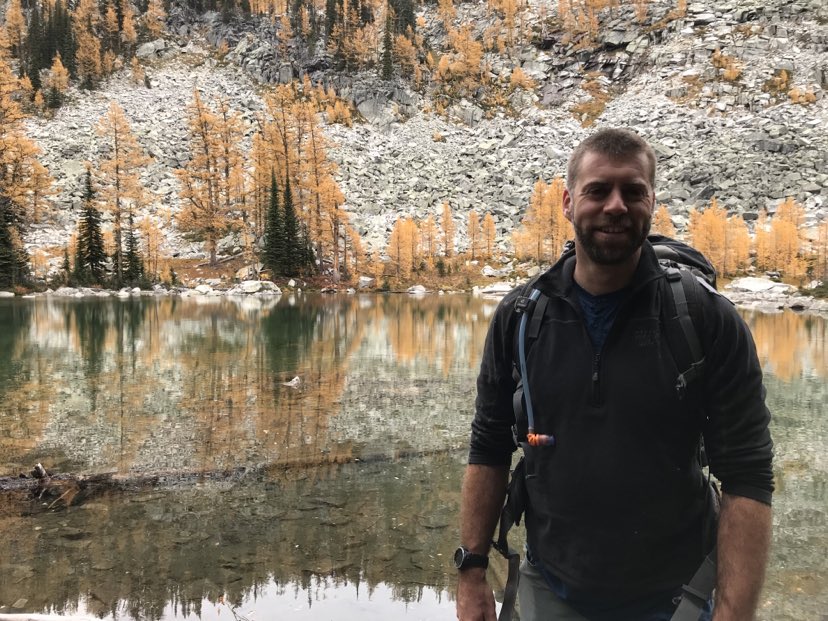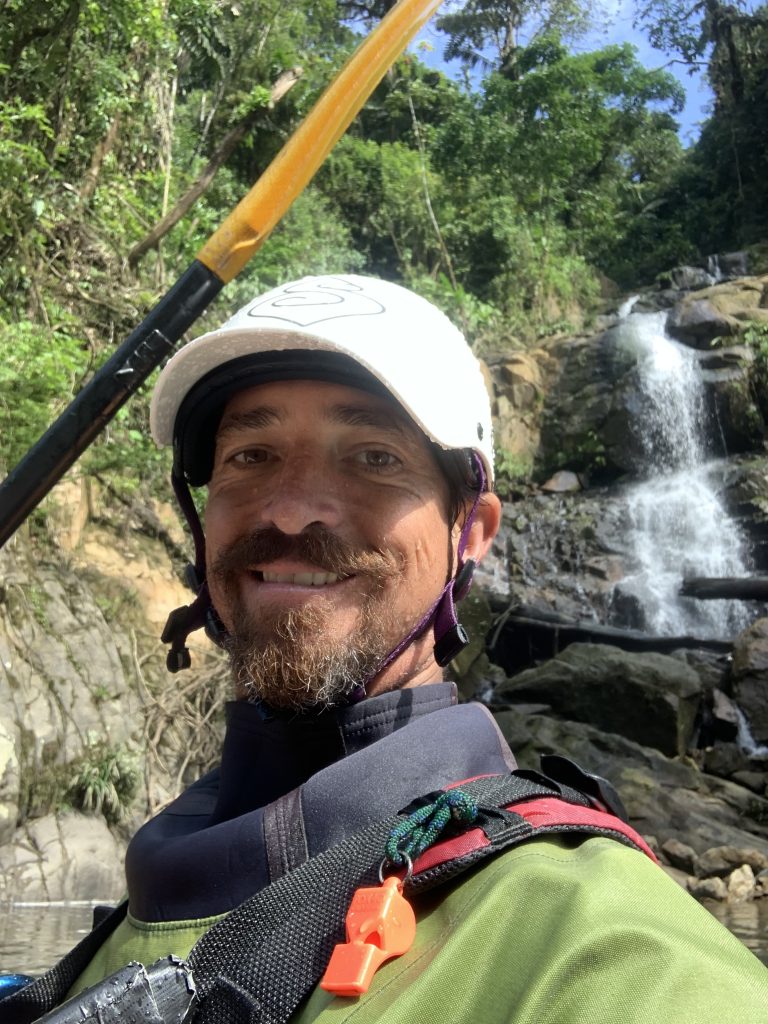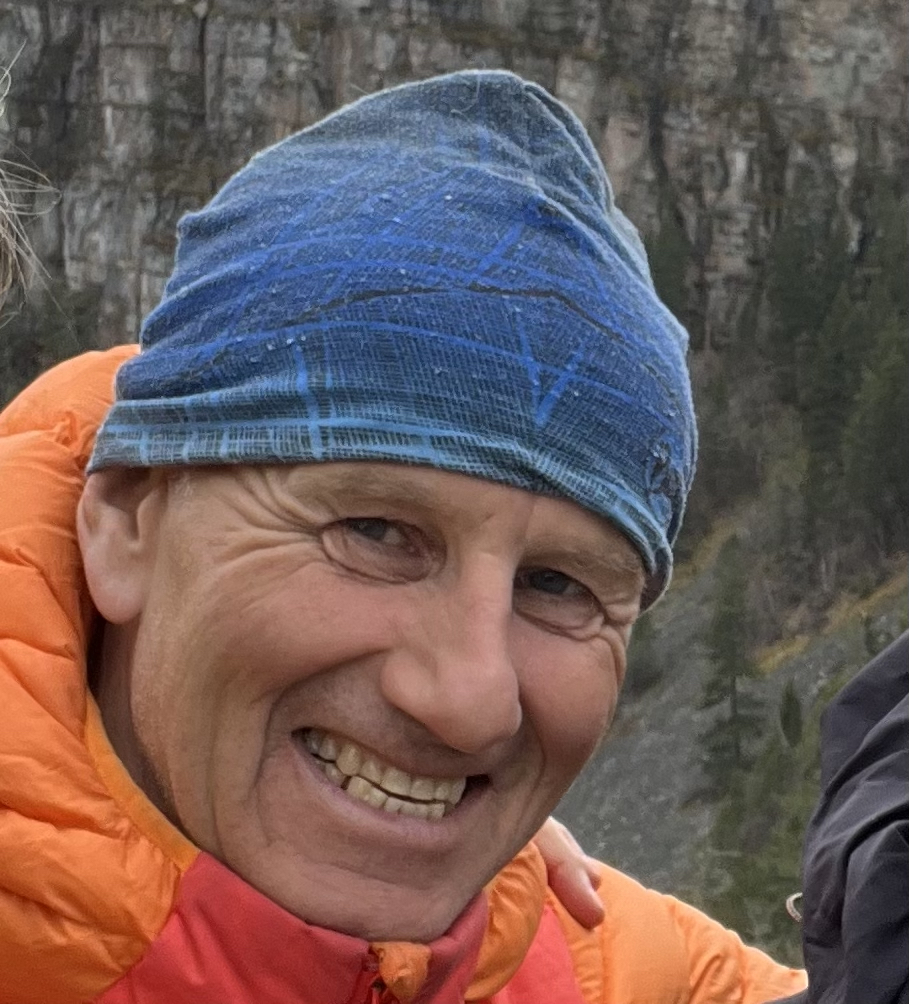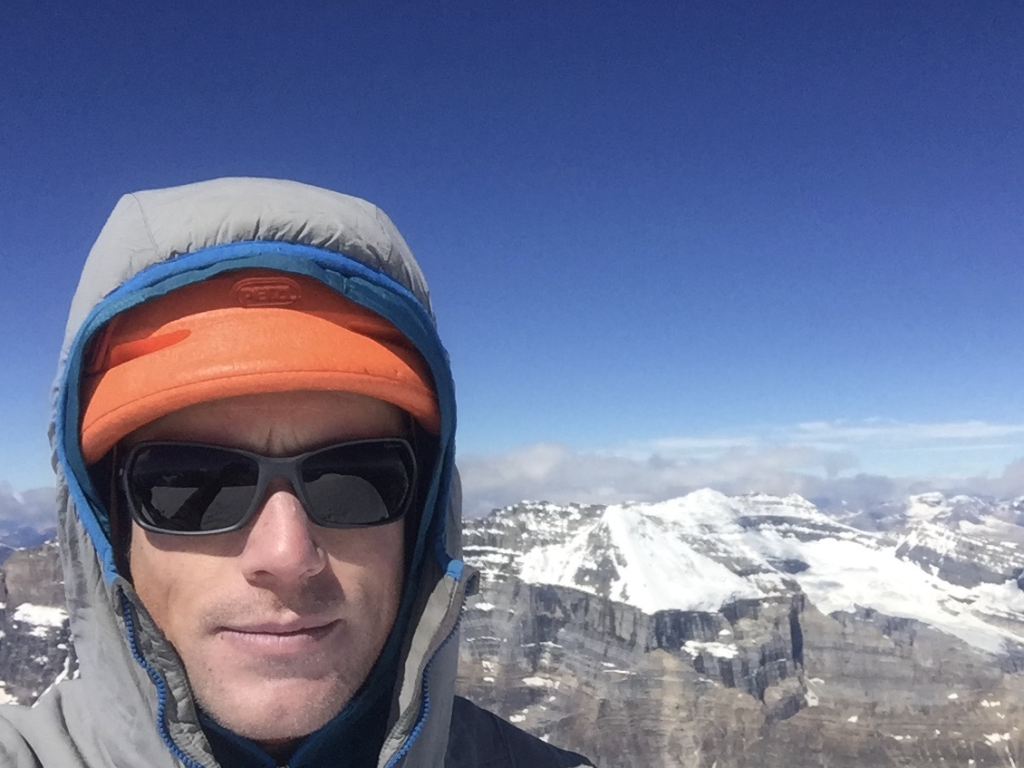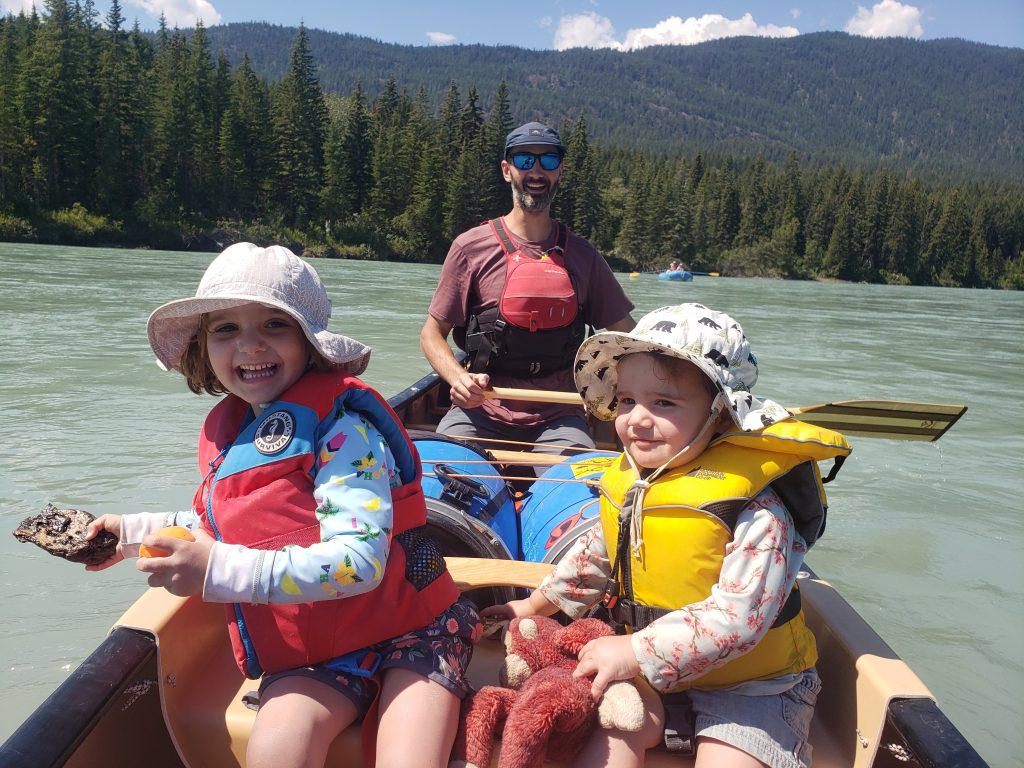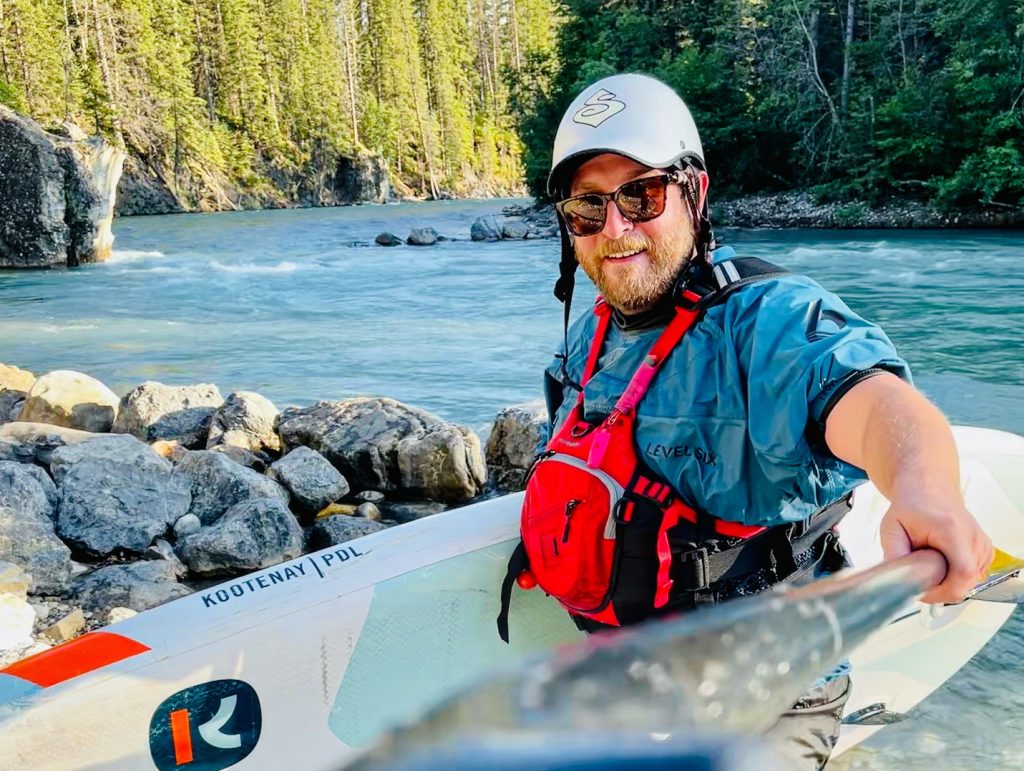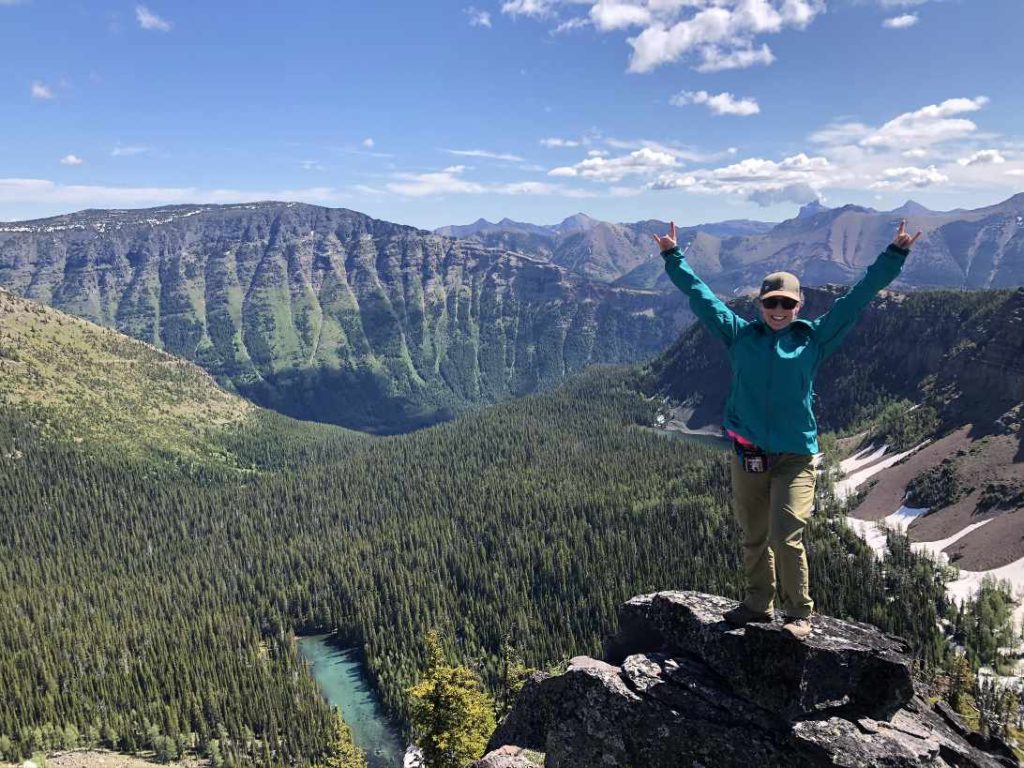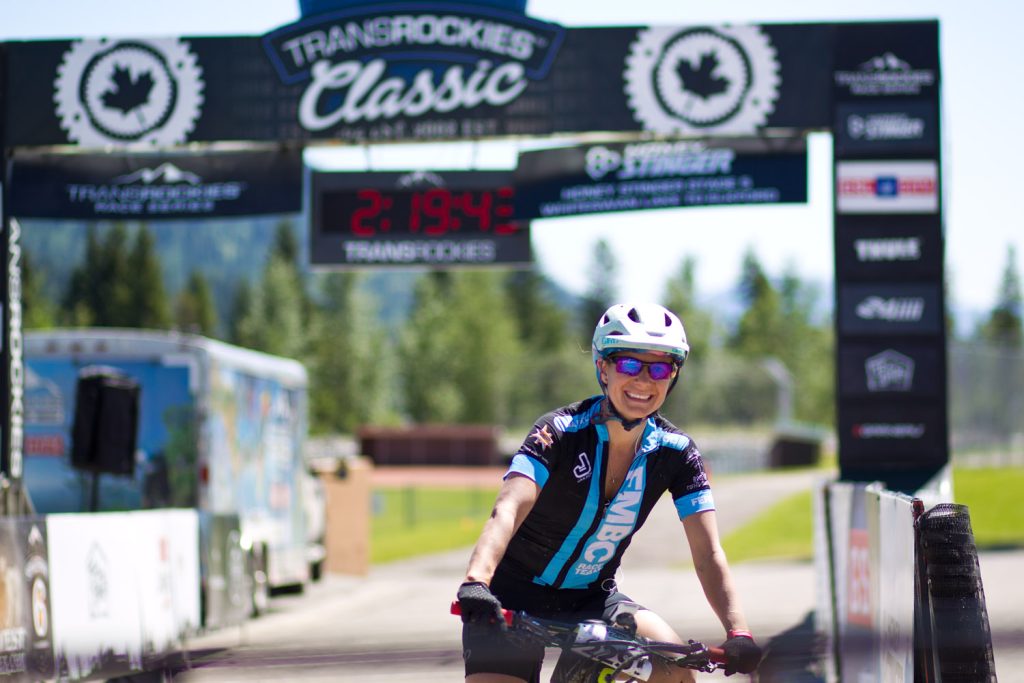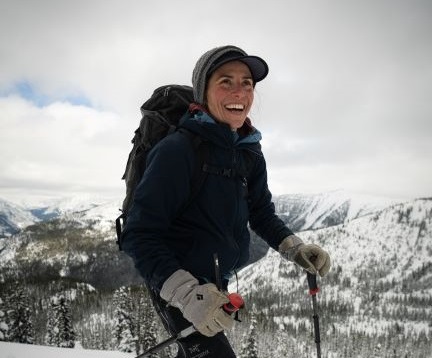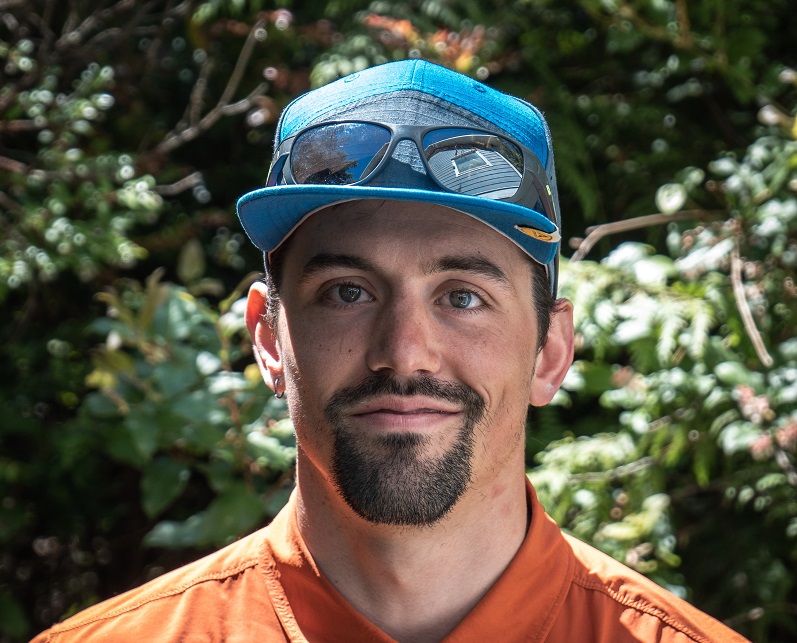Mountain Adventure Skills Training
Did we get you at Mountain Adventure? Push your personal boundaries in this truly adventurous program. Imagine your stunning BC Rocky Mountain classroom where you’ll spend time hiking, rock climbing, mountaineering, skiing, canoeing, whitewater rafting while also earning the certifications and training that employers want. That’s MAST!
Now accepting applications for September 2024!
Why Consider a Mountain Adventure Career?
- Why wouldn’t you? It’s a career that involves having adventures in the mountains!
- Employment opportunities abound: whether you are on a river or a mountain, there are many guiding and other careers waiting for you.
- Be prepared to work in your home province, across Canada, or even internationally.
Why Choose Our Program?
- The most comprehensive skills course list – all included in one tuition
- Our nine-month program prepares you to work or play in the backcountry or sidecountry
- Learn to be a professional from our highly skilled professional instructors
- Earn industry certifications
- Gain university credits towards a degree in Adventure Tourism
- Season pass at Fernie Alpine Resort included in tuition
- Enjoy the Canadian Rocky Mountain lifestyle in Fernie BC
- No fees for electives – 14 skills courses included in tuition
- No fees for textbooks
Program Overview
With the 9-month Mountain Adventure Skills Training program, 60% of your learning time will be outdoors experiencing the regions amazing adventure lifestyle opportunities while also learning the skills employers want you to know. With multiple certification courses, you’ll be introduced to the knowledge you need to be successful in your dream job.
The Mountain Adventure Skills Training Program (MAST) is designed for full-time students interested in pursuing a one year certificate and meets the requirements of the B.C. Provincial common core curriculum.
This program starts in September each year. Part-time students applying in the Winter or Spring semester should select University General Studies as their program when applying.
Learn to be an Adventure Tourism professional from our highly skilled instructors who work in the industry, get a season’s pass at Fernie Alpine Resort as part of your tuition, and gain university credits toward a degree in Adventure Tourism. This program has it all.
Program Structure:
- 38 of 48 Credits are required for the MAST Certificate
- There are no extra charges for elective courses
- There are no discounts or refunds from tuition fee if students choose not to take elective courses
Required Courses:
| Course | Title | Credits |
|---|---|---|
| MAST 111 | Risk Management in Adventure Tourism | 3 |
| MAST 114 | Natural History | 3 |
| MAST 119 | Guiding and Leadership | 3 |
| MAST 121 | Introduction to Adventure Tourism Industry | 3 |
| MAST 122 | Wilderness Travel Theory | 3 |
| MAST 136 | Entrepreneurship and Small Business Development | 3 |
| MAST 140 | Rock Climbing 1 | 2 |
| MAST 141 | Hiking 1 | 2 |
| MAST 142 | Mountaineering 1 | 2 |
| MAST 143 | Ski Touring 1 | 2 |
| MAST 144 | Canoe Skills 1 | 2 |
| MAST 145 | Whitewater Raft Guide Training 1 | 2 |
| MAST 146 | Avalanche Skills Training 1 | 2 |
| MAST 147 | Alpine Ski/Snowboard Instructor Certification | 2 |
| MAST 156 | Avalanche Skills Training 2 | 2 |
| MAST 150 or MAST 151 | Occupational First Aid Level 3 or Wilderness Medical Associates Wilderness First Responder | 2 |
Elective Courses:
(no extra charge for electives, no refund if you choose not to take the elective)
| Course | Title | Credits |
|---|---|---|
| MAST 162 | Ski Tour 2 | 2 |
| MAST 165 | Swiftwater Rescue Technician 3 | 2 |
| MAST 169 | River Expedition Skills | 2 |
| MAST 166 or MAST 167 | Whitewater Raft Guide Training 2 or Introduction to Whitewater Kayaking | 2 |
| MAST 168 or MAST 172 | Canoe Guide Certification or Mountain Bike Skills Development | 2 |
Outdoor Industry Certifications
Advanced Tandem Lakewater Paddler
Swiftwater Rescue Technician 3
Interpretive Guides Assoc. Basic Knowledge Course
CASI Snowboard Instructor Certification
CSIA Ski Instructor Certification
Wilderness First Responder Certification
Course Descriptions
Required Courses
MAST-111 – Risk Management in Adventure Tourism
Students explore legal and industry standards for risk management in Adventure Tourism. Topics include the guide’s role in managing risk, Canadian legal system, developing a risk management plan, the role of insurance and legal releases.
- Minimum Credits: 3
- Length: 45 hours
- Prerequisites: None
- Delivery Method: ? On-campus
- Course Outline
MAST-114 – Natural History
This course provides an overview of the natural/cultural history of the Southern Canadian Rocky Mountains and develops interpretation techniques to communicate this information. Lectures, demonstrations, and hands-on field experiences will cover the topics of geology, ecology, botany, biology, human history, ecosystem-based management and heritage interpretation. Students develop skills in classification, identification, interpretive techniques, and stewardship of the environment.
- Minimum Credits: 3
- Length: 45 hours
- Prerequisites: None
- Delivery Method: ? On-campus
- Course Outline
MAST-119 – Guiding and Leadership
This course involves an exploration of leadership and effective practice of theories and concepts of teaching, guiding and learning in an outdoor setting. Students examine leadership models, group and individual facilitation and the importance of communication while building a blue print of their own personal leadership philosophy and abilities. Other topics include certification standards, log book requirements and legal parameters.
- Minimum Credits: 3
- Length: 45 hours
- Prerequisites: None
- Delivery Method: ? On-campus
- Course Outline
MAST-121 – Introduction to Adventure Tourism Industry
This course provides an overview of the variety, products, and infrastructure of adventure tourism in the province. Students explore past trends and discuss the future of adventure tourism while examining the positive and negative impacts the industry has on communities, ecosystems, and economies. Topics of land use, environmental impacts and cultural considerations in tourism are discussed. This also helps students evaluate the scope of career options and define their own role in this exciting industry.
- Minimum Credits: 3
- Length: 45 hours
- Prerequisites: None
- Delivery Method: ? On-campus
- Course Outline
MAST-122 – Wilderness Travel Theory
This course reviews aspects of wilderness travel such as clothing and equipment, navigation, environmental concerns and group travel techniques. Students will learn to identify declination and magnetic north, take a bearing from a map, set a compass from a map and follow a compass bearing. Students will gain a thorough knowledge of topographical maps and the military grid system and will utilize new learning in trip planning exercises. This course introduces the student to the concepts of summer and winter emergency survival in wilderness settings. Topics such as fire building, shelter building, and the psychology of stress are discussed. Overnight survival exercises complete the course.
- Minimum Credits: 3
- Length: 64 hours
- Prerequisites: None
- Delivery Method: ? On-campus
- Course Outline
MAST-136 – Entrepreneurship and Small Business Development
This course introduces the development, planning, marketing, financing and key success factors required to start new action sport, eco- and adventure tourism businesses. Students consider the
opportunities, risks and issues specific to small business ventures during pre-startup, launch and initial growth. This course is designed to assist the student in developing a viable business model, then create a basic professional business plan, supported by research from primary and second sources. In addition to textbooks, the instructor uses case studies and multiple industry examples to illuminate courses concepts.
- Minimum Credits: 3
- Length: 45 hours
- Prerequisites: None
- Delivery Method: ? On-campus
- Course Outline
MAST-140 – Rock Climbing 1
This course introduces the student to the basics of top roped rock climbing. Students learn the basic knots, safety procedures, equipment and rope skills, group management and climbing techniques to safely set up and climb basic top roped climbs.
- Minimum Credits: 2
- Length: 62 hours
- Prerequisites: None
- Delivery Method: ? On-campus
- Course Outline
MAST-141 – Hiking 1
This course involves a five day hike through local alpine mountainous terrain where students learn basic camp skills, environmental concerns, group travel considerations, safety and route planning, navigation, food and menu preparation. Classroom and field preparation days lead to a five day mountain expedition.
- Minimum Credits: 2
- Length: 74 hours
- Prerequisites: None
- Delivery Method: ? On-campus
- Course Outline
MAST-142 – Mountaineering 1
This course introduces students to basic glacier travel. Students develop skills in group management, roped travel, crevasse rescue, glaciology, winter camping skills, snow and ice anchors.
- Minimum Credits: 2
- Length: 62 hours
- Prerequisites: None
- Delivery Method: ? On-campus
- Course Outline
MAST-143 – Ski Touring 1
This course focuses on the skills necessary to travel, ski or snowboard safely in the backcountry in winter. These skills include ski touring equipment knowledge and proficiency, route finding, avalanche terrain and hazard evaluation, group travel management, and companion rescue.
- Minimum Credits: 2
- Length: 52 hours
- Prerequisites: Students must be strong intermediate skiers and/or snowboarders and have completed the MAST 146 Avalanche Skills Training. Must be physically fit and capable of traveling in mountainous terrain under adverse weather conditions.
- Delivery Method: ? On-campus
- Course Outline
MAST-144 – Canoe Skills 1
This course prepares the student to canoe tandem and solo in lake water and class 1-2 river situations. Basic strokes and maneuvers are taught while canoe safety and self-rescue are practiced and
demonstrated. Curriculum follows the Recreational Canoe Association of BC Advanced Tandem and Solo sections as well as touching on Basic Moving water skills.
- Minimum Credits: 2
- Length: 40 hours
- Prerequisites: None
- Delivery Method: ? On-campus
- Course Outline
MAST-145 – Whitewater Raft Guide Training 1
This course prepares the student for employment in the BC Rafting Industry. Students will learn how to read whitewater, manage a team in the raft, perform river rescues, rig a raft and to maneuver a raft in up to class 3 water.
- Minimum Credits: 2
- Length: 40 hours
- Prerequisites: MAST 165
- Delivery Method: ? On-campus
- Course Outline
MAST-146 – Avalanche Skills Training 1
The Avalanche Skills Training program provides a national standard for entry level and intermediate level decision making in avalanche terrain. The curriculum provides a decision making framework suitable for use by people with a moderate degree of training and experience. This course covers two introductory certifications: AST 1 and Companion Rescue Certifications and focuses on safe travel practices in avalanche terrain. Several Canadian Avalanche Centre educational products are utilized to develop route finding, hazard awareness, companion rescue and decision making skills.
- Minimum Credits: 2
- Length: 36 hours
- Prerequisites: None
- Delivery Method: ? On-campus
- Course Outline
MAST-147 – Alpine Ski/Snowboard Instructor Certification
The Level 1 Courses combine the basics of practical teaching methods, technical understanding and development of guest service skills. Candidates receive coaching on their riding, teaching and people skills with the goal of reaching the Level 1 standard. They also receive suggestions and strategies for long-term development. Level 1 is a pre-requisite for Level 2. The alpine skiers take the CSIA Alpine Ski Instructor Level 1 Certification course. The snowboarders take the CASI Snowboard Instructor Level 1 Certification course.
- Minimum Credits: 2
- Length: 32 hours
- Prerequisites: None
- Delivery Method: ? On-campus
- Course Outline
MAST-156 – Avalanche Skills Training 2
Avalanche Skills Training 2 builds on the foundations of the Avalanche Skills Training 1 course. AST 2 provides a more advanced decision making framework that is based on the most advanced knowledge available and is suitable for use by people with a moderate degree of training and experience. Classroom and field sessions focus on developing route finding, hazard awareness, companion rescue and decision making skills.
- Minimum Credits: 2
- Length: 72 hours
- Prerequisites: MAST 146 Avalanche Skills Training 1
- Delivery Method: ? On-campus
- Course Outline
Choose one (1) of the following:
MAST-150 – Occupational First Aid Level 3
This in depth first aid course is a prerequisite for employment with the BC Ambulance Service, many ski patrols and some Fire Police Departments. It covers the basics of airway, breathing and circulation – includes how to deal with obstructed airways, breathing distress, bleeding control, shock and one and two person CPR. In addition, continuing patient assessment, hard collar application, securing a patient to a spine board, upper and lower limb splinting and minor wound care are covered. Completion of records and reports are an integral part of the course. The course covers basic to advanced life support and first aid scenario skills.
- Minimum Credits: 2
- Length: 80 hours
- Prerequisites: None
- Delivery Method: ? On-campus
- Course Outline
MAST-151 – Wilderness Medical Associates Wilderness First Responder
The Wilderness First Responder program is the ideal medical training for leaders in remote areas including outdoor educators, guides, military, professional search and rescue teams, researchers, and those involved in disaster relief. The curriculum is comprehensive and practical. It includes the essential principles and skills required to assess and manage medical problems in isolated and extreme environments for days and weeks if necessary.
- Minimum Credits: 2
- Length: 80 hours
- Prerequisites: None
- Delivery Method: ? On-campus
- Course Outline
Elective Courses:
Notes:
- No extra charge for electives, no refund if you choose not to do elective.
- 38 of 48 Credits required for Full Certificate Credential Program
MAST-162 – Ski Tour 2
This is an advanced Ski Mountaineering course in which students advance their ski touring skills in larger mountainous terrain. Students spend five days practicing route finding and navigation skills, winter camping skills, assessing avalanche terrain and skiing through glaciated terrain.
- Minimum Credits: 2
- Length: 62 hours
- Prerequisites: MAST 143 and MAST 156
- Delivery Method: ? On-campus
- Course Outline
MAST-165 – Swiftwater Rescue Technician 3
This four-day intensive certification course develops the student’s abilities to react correctly in a river rescue situation. Students learn to be comfortable in moving water and have a basic understanding of moving water principles while practicing proven river rescue techniques for canoeists, kayakers, rafters and rescue personnel.
- Minimum Credits: 2
- Length: 32 hours
- Prerequisites: None
- Delivery Method: ? On-campus
- Course Outline
MAST-169 – River Expedition Skills
This course will introduce the students to multi day large group river expedition guiding skills. Topics include menu planning, shopping, packing and cooking for a large group. Students will utilization group cooking equipment and food safety and handling techniques. Planning, packing, set up of group paddling equipment, various style of craft, safety gear, personal gear packing and storage in crafts. The students will execute a large group multi day expedition.
- Minimum Credits: 2
- Length: 30 hours
- Prerequisites: MAST 144, MAST 145, MAST 166 or 167.
- Delivery Method: ? On-campus
- Course Outline
Choose one (1) of the following:
MAST-166 – Whitewater Raft Guide Training 2
Building upon Whitewater Raft Guide Training 1, this course gives students advanced skills and maneuvers in rivers up to Grade 3. Students refine river reading skills, work as a team and learn advanced guiding skills. Students develop leadership skills to coach and command a raft crew in preparation for meeting the qualifications required by the BC Rafting Outfitters Association. Multiple days on the Elk and Bull rivers develop strong team rafting skills as well as safety and risk management practices.
- Minimum Credits: 2
- Length: 40 hours
- Prerequisites: MAST 145
- Delivery Method: ? On-campus
- Course Outline
MAST-167 – Introduction to Whitewater Kayaking
This course is designed to develop skills at the novice white water kayaking level. Students are educated in safety issues as well as equipment design and use. Instruction is provided in flat water techniques, progressing into gentle whitewater and river running procedures. This course prepares the student to safely progress to grade three whitewater and covers theoretical knowledge and practical application of whitewater kayaking skills.
- Minimum Credits: 2
- Length: 50 hours
- Prerequisites: MAST 145 Whitewater Raft Guide Training 1
- Delivery Method: ? On-campus
- Course Outline
Choose one (1) of the following:
MAST-168 – Canoe Guide Certification
Building upon skills learned in Canoe Skills 1 students can be certified at the Day Guide and Expedition guide levels providing they meet the Recreational Canoeing Association of British Columbia standards. The course focuses on: paddling, rescue and teaching skills, group management and dynamics, risk assessment and decision making, meal preparation and hygiene, camping, Leave No Trace and interpretive skills. The Expedition Guide Certificate requires solid moving water skills in addition to many other leadership, coaching, communication, camping and environmental skills.
- Minimum Credits: 2
- Length: 52 hours
- Prerequisites: MAST 144
- Delivery Method: ? On-campus
- Course Outline
MAST-172 – Mountain Bike Skills Development
This course is geared towards beginner to advanced riders looking for formal instruction in riding techniques, mountain bike guiding skills, trail building and bike maintenance. Taking place in Fernie, this course utilizes local trails, professional bike guides and mechanics and local trail builders to encompass a complete overview of the employment opportunities in this growing sector.
- Minimum Credits: 2
- Length: 35 hours
- Prerequisites: None
- Delivery Method: ? On-campus
- Course Outline
Admission Requirements
Academic Requirements:
- Secondary school graduation or equivalent.
- Minimum 65% in either English 12, English Studies 12, English First Peoples 12, ENGL 090, or equivalent.
Non-Academic Admission Requirements:
- 19 years or older as of September 4th, prior to program beginning.
- Completion and submission of MAST Program Admissions Package, which includes a letter of interest, a resume, a reference letter from employer or educational instructor, the MAST Application Questionnaire, the MAST Ski Ability Policy and Agreement, the MAST Physical Fitness & Abilities Agreement, the MAST Medical History Questionnaire, and the MAST general program waiver, and
- •Students will be required to sign a general program release and waiver form before attending any outdoor activity.
How to Apply
Applications from qualified students are processed on a first come, first served basis. Do not delay submitting your application.
To apply for entry in the MAST program please complete the following steps:
1. Review the Admission Requirements:
You must be 19 years or older as of September 1 and have completed Grade 12 or equivalent, or have permission from the Program Coordinator. You must also be physically able to accomplish the tasks of the program.
2. Apply online:
Apply online through the EducationPlannerBC (EPBC)’s application service.
- Enclose your secondary school transcript
- Enclose the $30 application processing fee ($100 if you are an International Student)
- An Admission Package will be forwarded when your secondary school transcript and application fee are received.
3. A non-refundable commitment fee of $250 is required.
You are given details for this payment in your letter of acceptance. Tuition installment and deadlines will be detailed in your letter of acceptance.
Your Costs
Season’s Pass at Fernie Alpine Resort included in tuition. We offer more skills courses included in tuition than any other Adventure Program!
Tuition includes:
- Group equipment – tents, ropes, rafts, canoes, kayaks, cooking equipment (except as noted on personal equipment list)
- Transportation and accommodation during out-trips
- Textbooks for core courses
- Season pass at Fernie Alpine Resort
- Free access to Fernie campus climbing gym and computer lab
Tuition and Fees for Domestic Students:
For the 2024/25 academic year (2024/SU, 2024/FA, 2025/WI, 2025/SP)
| Tuition: | $10,399.83 |
| Application Fee: | $30.00 |
| Student Association Fee: | $80.50 |
| Health and Dental Fee: | $240.00 |
| Total | $10,750.33 |
*These prices are for domestic students and may not be 100% accurate. However, these estimates will give you an adequate idea of tuition and fees for our programs. These prices do not include textbook costs. All prices are subject to change. Tuition fees include an alumni fee, student activity fees, and a student technology fee. In certain cases a materials and supply fee may also be included. For more information, visit: Tuition and Fees.
Tuition and Fees for International Students:
For the 2023/24 academic year (2023/SU, 2023/FA, 2024/WI, 2024/SP)
| Tuition: | $17,850.00 |
| Application Fee: | $100.00 |
| International Fee: | $100.00 |
| Student Association Fee: | $80.50 |
| Health and Dental Fee: | $229.50 |
| Guard.me Insurance: | $270.00 |
| Total | $18,630.00 |
*These prices are for international students and may not be 100% accurate. However, these estimates will give you an adequate idea of tuition and fees for our programs. These prices do not include textbook costs. All prices are subject to change. Tuition fees include an alumni fee, student activity fees, and a student technology fee. In certain cases a materials and supply fee may also be included. For more information, visit: Tuition and Fees.
Additional Student Costs:
- Personal equipment (see list below)
- Out-trip food and equipment rental. Students are responsible for food and personal costs during out-trips.
- Lodging in Fernie and personal expenses. The MAST program is based in Fernie, BC. There is no College residence available.
Equipment Requirements
The following personal equipment list is required by all MAST students. This equipment will, with care, last for years. Students may wish to delay purchase of equipment until program confirmation. For good advice and introductory product knowledge check the ‘LEARN’ heading on the MEC (Mountain Equipment Coop) web site..
Camping and Hiking Gear needed by September 1
- Mountaineering boots suitable for use with crampons (can be rented)
- Good quality hiking boots for off trail serious mountain terrain
- Down jacket, Down booties with winter use covers (a true luxury)
- Head lamp, water bottle, camp eating utensils, bowl etc.
- Compass with sighting mirror, adjustable declination and clinometer. Recommended models: Suunto MC-2 (G-Global or NH-Northern Hemisphere), Silva 16DCL or Silva Expedition S
- Outerwear, Gortex jacket and pants, soft shells and/or equivalent, lightweight and packable
- Sun hat, toque, leather-palm winter ski gloves
- Sunglasses and goggles (UV blocks)
- Socks plus spares (wool or synthetic or blend, no cotton)
- Insulative layers (polypro underwear, fleece, etc.) (no cotton)
- Personal outdoor clothing (quick dry pants, all weather clothing) (no cotton)
- Four-season sleeping bag (at least -18’C)(down is lighter and packs smaller)
- Sleeping pad or Thermarest (ultra light model suitable for winter camping)
- Multi day pack >70 litres
- Day pack 40 litres – suitable to strap skis or snow board to with waist and sternum straps
- Gaiters – waterproof-breathable fabric, loose fitting, big enough for hiking and mountaineering boots.
- Bear Spray and Holster
- Watch – with alarm for field courses
Ski Touring Gear needed by November 1
- Skis (recommended 90-105 mm waist, not twin tip)
- Back country touring bindings (recommend new Fritchi or Dynafit) or Telemark set up or Split Board with touring specific bindings and 3 segment collapsible ski poles
- Ski Touring boots suitable for bindings (should have vibram sole and excellent walk mode)
- Ski helmet
- Touring / Climbing skins
- Avalanche probe (minimum 280 cm) CM markings, metal avalanche shovel – large blade
- Digital (3 antennae) avalanche transceiver
Rock Climbing Gear needed by September 1
- 12m of 7 mm accessory cord
- One long sewn sling (runner): (120cm long)
- 5m 1″ tubular climbing webbing
- Rock climbing shoes – snug but not painful
- Climbing helmet
- Climbing harness (with adjustable legs for winter use)
- Four locking carabiners (one locking pear shaped auto locking, triple action gate)
- Four non-locking carabiners – identical – and not bent gate
- Belay device (suitable for a variety of rope sizes)
Whitewater Rafting/Canoeing/Kayaking Gear needed by April
- PFD (Personal Floatation Device – Rafting/Canoeing specific – rescue model preferred)
- Wet suit (3mm farmer john) and dry top (at minimum) or Dry Suit (recommended)
- 3mm Neoprene: gloves, socks, beanie and booties (good quality with strong sole)
- Whitewater helmet
- Accessories: whistle, water knife, throw bag
Note:
- This list does not include standard academic items such as texts, writing materials, etc.
- This list refers only to technical equipment; clothing and other daily necessities are not included.
- Students are urged to consider the most cost effective equipment purchases. Look for sale items, phone several shops and talk to experienced sales people.
- Students will be required to have a personal laptop.
Mountain Adventure Skills Training Certificate – Block Transfer Agreements
| To Institution | Program | |
|---|---|---|
| Algonquin College | Outdoor Adventure Ontario College Diploma | Transfer Agreement |
| College of the Rockies | Adventure Tourism Business Operations Diploma | Transfer Agreement |
Meet the MAST Instructors
Program Details
Delivery Method:?
On-campus, Off-site
Credential:
Certificate
Categories:
Block Transfer Agreements with Other Institutions, Industry & Trades Training, Tourism, Recreation & Hospitality
Interests:
Adventure, Get in, Get out, Get a Job, Not Have a Desk Job, Start or Run Your Own Business, Teach Others, Work Outdoors, Work With My Hands
Contact Details
Fernie Campus
342 – 3rd Avenue
PO Box 1770, Fernie, BC, V0B 1M0
Phone: 250-423-4691
Toll-free: 1-866-423-4691
Email: fernie@cotr.bc.ca
MAST Alumni Series
Where are they now?

